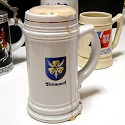
Conference between the Commander in Chief, Navy, and the Führer in the afternoon of 14 September 1940. The Führer has come to the conclusion that it would be wrong after all to call off operation "Seelöwe" at this time already, as he had apparently planned to do on 13 September. The air attacks have been very effective and would have been more so if the weather had been good. The degree of air supremacy necessary to justify executing operation "Seelöwe" has not yet been reached, however. For this reason operation "Seelöwe" is not yet practicable. If the pressure of the imminent landing were added to further air attacks, the total effect would be very strong after all. For not one attack is decisive, but the total effect produced. If operation "Seelöwe" were called off now, British morale would be lifted and our air attacks would be easier to bear. The Commander in Chief, Navy, agrees. He has always been of the opinion that operation "Seelöwe" should be the last resort and that the risk is very great. The situation in the air is not yet such as to reduce the risk involved to a minimum. Should operation "Seelöwe" fail, the British would gain a great amount of prestige, and the enormous effect of the air successes would be minimized. In the event of good weather the Luftwaffe must first be given the opportunity to intensify the attacks, especially on London, regardless of operation "Seelöwe". These attacks may decide the outcome of the war. Operation "Seelöwe" must not be abandoned now, however, for the reasons given by the Führer. The air situation can scarcely be expected to change to any great extent between 24 and 27 September as regards the safety of operation "Seelöwe"; for this reason the operation should be postponed until 8 or 24 October. If we wish to avoid loss of prestige, it will be permissible to abandon operation "Seelöwe" only at the moment of maximum air successes, on the grounds that it is no longer necessary. The Führer agrees, but he wishes to decide on 17 September whether the operation is to take place on 27 September or not. The Commander in Chief, Army, declares that the Army no longer attaches such great importance to a landing at dawn, so that the time element involved can be reconsidered. As far as the Commander in Chief, Navy, can find out, this sudden change in the Army's initial stubborn demand can be traced to the fact that the front-line generals, like the Navy, are opposed to a night crossing. In discussing the air attacks on London, the Commander in Chief, Navy, supports the view of the Chief of the General Staff, Luftwaffe [General Jeschonnek], namely, that the attacks on targets of military importance will not suffice to produce mass psychosis and large-scale evacuation, since the residential areas are some distance from the docks, etc. The Führer, however, wishes to reserve deliberate attacks on residential areas as a final means of pressure and as reprisal for British attacks of this nature. The Commander in Chief, Navy, points out in this connection what a small area the port and dock installations and industrial sections cover in proportion to the gigantic area occupied by the residential part of London. As soon as the positions of the heavy British coastal batteries have been established, they are to be attacked by dive bombers of the Luftwaffe.
|
 BOOK: The Battleship Bismarck. The Complete History of the Ship.
 Naval & military gifts
|
